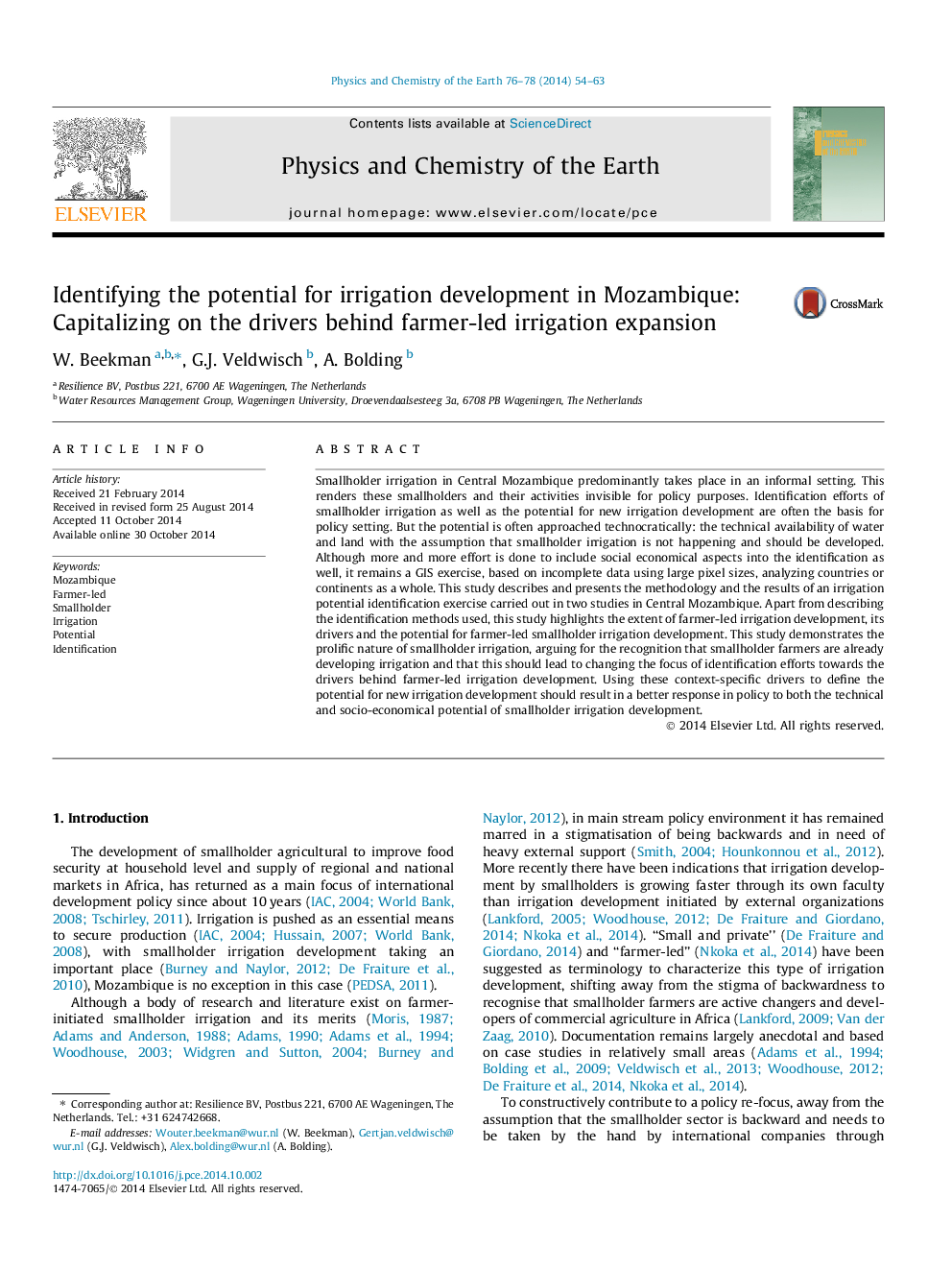| Article ID | Journal | Published Year | Pages | File Type |
|---|---|---|---|---|
| 4720962 | Physics and Chemistry of the Earth, Parts A/B/C | 2014 | 10 Pages |
•Farmer-led irrigation is more prolific than given credit to.•Farmer-led irrigation takes place in an informal setting.•Identifying irrigation potential should be based on existing farmer-led irrigation.•This will lead to more sustainable irrigation development.
Smallholder irrigation in Central Mozambique predominantly takes place in an informal setting. This renders these smallholders and their activities invisible for policy purposes. Identification efforts of smallholder irrigation as well as the potential for new irrigation development are often the basis for policy setting. But the potential is often approached technocratically: the technical availability of water and land with the assumption that smallholder irrigation is not happening and should be developed. Although more and more effort is done to include social economical aspects into the identification as well, it remains a GIS exercise, based on incomplete data using large pixel sizes, analyzing countries or continents as a whole. This study describes and presents the methodology and the results of an irrigation potential identification exercise carried out in two studies in Central Mozambique. Apart from describing the identification methods used, this study highlights the extent of farmer-led irrigation development, its drivers and the potential for farmer-led smallholder irrigation development. This study demonstrates the prolific nature of smallholder irrigation, arguing for the recognition that smallholder farmers are already developing irrigation and that this should lead to changing the focus of identification efforts towards the drivers behind farmer-led irrigation development. Using these context-specific drivers to define the potential for new irrigation development should result in a better response in policy to both the technical and socio-economical potential of smallholder irrigation development.
